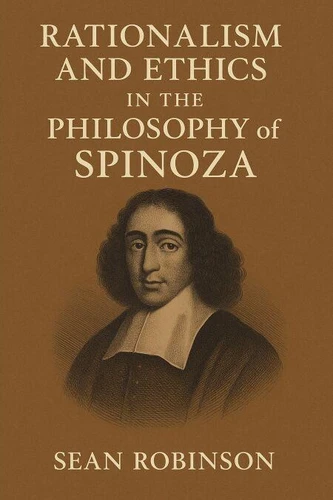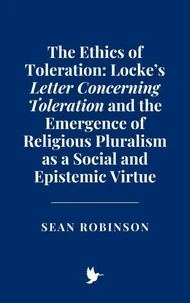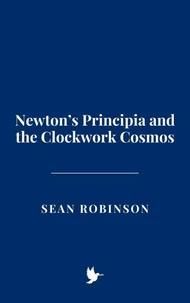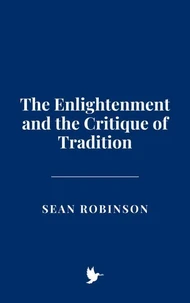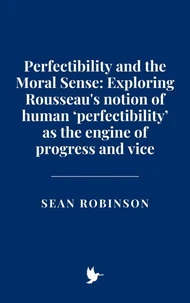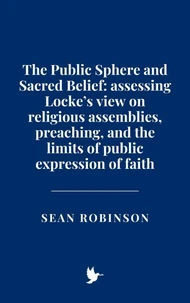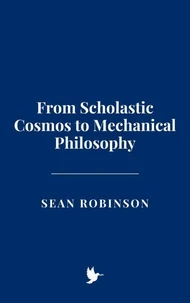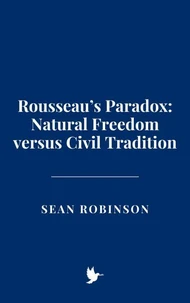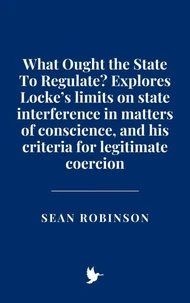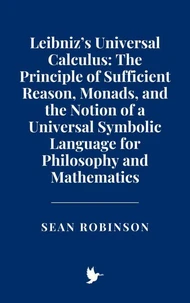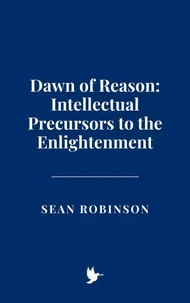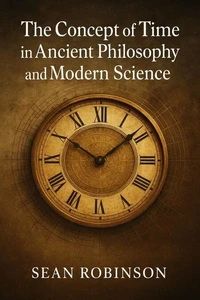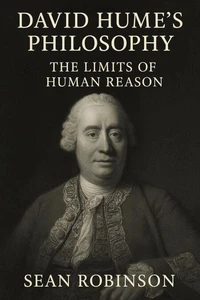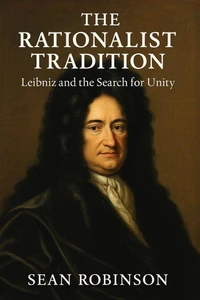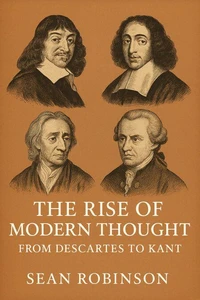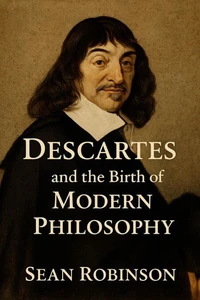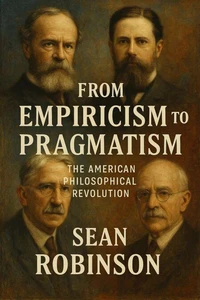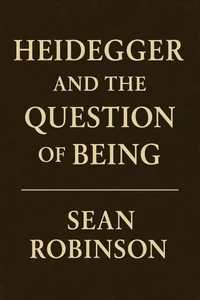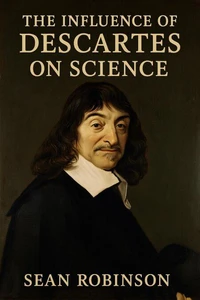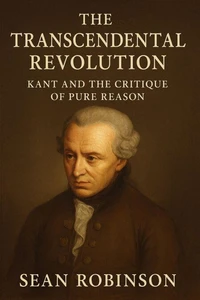Rationalism and Ethics in the Philosophy of Spinoza
Par :Formats :
Disponible dans votre compte client Decitre ou Furet du Nord dès validation de votre commande. Le format ePub est :
- Compatible avec une lecture sur My Vivlio (smartphone, tablette, ordinateur)
- Compatible avec une lecture sur liseuses Vivlio
- Pour les liseuses autres que Vivlio, vous devez utiliser le logiciel Adobe Digital Edition. Non compatible avec la lecture sur les liseuses Kindle, Remarkable et Sony
 , qui est-ce ?
, qui est-ce ?Notre partenaire de plateforme de lecture numérique où vous retrouverez l'ensemble de vos ebooks gratuitement
Pour en savoir plus sur nos ebooks, consultez notre aide en ligne ici
- FormatePub
- ISBN8227019936
- EAN9798227019936
- Date de parution16/04/2025
- Protection num.pas de protection
- Infos supplémentairesepub
- ÉditeurBig Dog Books, LLC
Résumé
"Rationalism and Ethics in the Philosophy of Spinoza" by Sean Robinson offers a comprehensive exploration of Baruch Spinoza's contributions to rationalist thought and ethical theory. In this work, Robinson delves into Spinoza's groundbreaking metaphysics, where he unites God, nature, and substance into a single, infinite reality, and examines the implications of this monism for human action and morality.
The book scrutinizes how Spinoza's deterministic worldview, rejecting free will in favor of intellectual freedom through the understanding of necessary causes, reshapes our conceptions of virtue, morality, and human autonomy. Through a close analysis of Spinoza's Ethics, Robinson highlights how reason, for Spinoza, is not only the key to emotional liberation but also the gateway to ethical living.
The author engages with Spinoza's ideas on the emotions, passions, and how moral behavior aligns with the rational order of the universe, arguing that virtue is best achieved by understanding the laws of nature and living in harmony with them. Spinoza's ethical naturalism, his emphasis on intellectual love of God, and his views on societal harmony through reason-based governance are explored in depth.
This book also situates Spinoza within the broader intellectual landscape, showing how his rationalism influenced later thinkers in both philosophy and politics, laying the groundwork for modern secularism, political freedom, and the development of virtue ethics. Through Robinson's careful analysis, "Rationalism and Ethics in the Philosophy of Spinoza" offers a new perspective on Spinoza's relevance to contemporary discussions of ethics, free will, and the integration of reason with moral action.
The book scrutinizes how Spinoza's deterministic worldview, rejecting free will in favor of intellectual freedom through the understanding of necessary causes, reshapes our conceptions of virtue, morality, and human autonomy. Through a close analysis of Spinoza's Ethics, Robinson highlights how reason, for Spinoza, is not only the key to emotional liberation but also the gateway to ethical living.
The author engages with Spinoza's ideas on the emotions, passions, and how moral behavior aligns with the rational order of the universe, arguing that virtue is best achieved by understanding the laws of nature and living in harmony with them. Spinoza's ethical naturalism, his emphasis on intellectual love of God, and his views on societal harmony through reason-based governance are explored in depth.
This book also situates Spinoza within the broader intellectual landscape, showing how his rationalism influenced later thinkers in both philosophy and politics, laying the groundwork for modern secularism, political freedom, and the development of virtue ethics. Through Robinson's careful analysis, "Rationalism and Ethics in the Philosophy of Spinoza" offers a new perspective on Spinoza's relevance to contemporary discussions of ethics, free will, and the integration of reason with moral action.
"Rationalism and Ethics in the Philosophy of Spinoza" by Sean Robinson offers a comprehensive exploration of Baruch Spinoza's contributions to rationalist thought and ethical theory. In this work, Robinson delves into Spinoza's groundbreaking metaphysics, where he unites God, nature, and substance into a single, infinite reality, and examines the implications of this monism for human action and morality.
The book scrutinizes how Spinoza's deterministic worldview, rejecting free will in favor of intellectual freedom through the understanding of necessary causes, reshapes our conceptions of virtue, morality, and human autonomy. Through a close analysis of Spinoza's Ethics, Robinson highlights how reason, for Spinoza, is not only the key to emotional liberation but also the gateway to ethical living.
The author engages with Spinoza's ideas on the emotions, passions, and how moral behavior aligns with the rational order of the universe, arguing that virtue is best achieved by understanding the laws of nature and living in harmony with them. Spinoza's ethical naturalism, his emphasis on intellectual love of God, and his views on societal harmony through reason-based governance are explored in depth.
This book also situates Spinoza within the broader intellectual landscape, showing how his rationalism influenced later thinkers in both philosophy and politics, laying the groundwork for modern secularism, political freedom, and the development of virtue ethics. Through Robinson's careful analysis, "Rationalism and Ethics in the Philosophy of Spinoza" offers a new perspective on Spinoza's relevance to contemporary discussions of ethics, free will, and the integration of reason with moral action.
The book scrutinizes how Spinoza's deterministic worldview, rejecting free will in favor of intellectual freedom through the understanding of necessary causes, reshapes our conceptions of virtue, morality, and human autonomy. Through a close analysis of Spinoza's Ethics, Robinson highlights how reason, for Spinoza, is not only the key to emotional liberation but also the gateway to ethical living.
The author engages with Spinoza's ideas on the emotions, passions, and how moral behavior aligns with the rational order of the universe, arguing that virtue is best achieved by understanding the laws of nature and living in harmony with them. Spinoza's ethical naturalism, his emphasis on intellectual love of God, and his views on societal harmony through reason-based governance are explored in depth.
This book also situates Spinoza within the broader intellectual landscape, showing how his rationalism influenced later thinkers in both philosophy and politics, laying the groundwork for modern secularism, political freedom, and the development of virtue ethics. Through Robinson's careful analysis, "Rationalism and Ethics in the Philosophy of Spinoza" offers a new perspective on Spinoza's relevance to contemporary discussions of ethics, free will, and the integration of reason with moral action.

